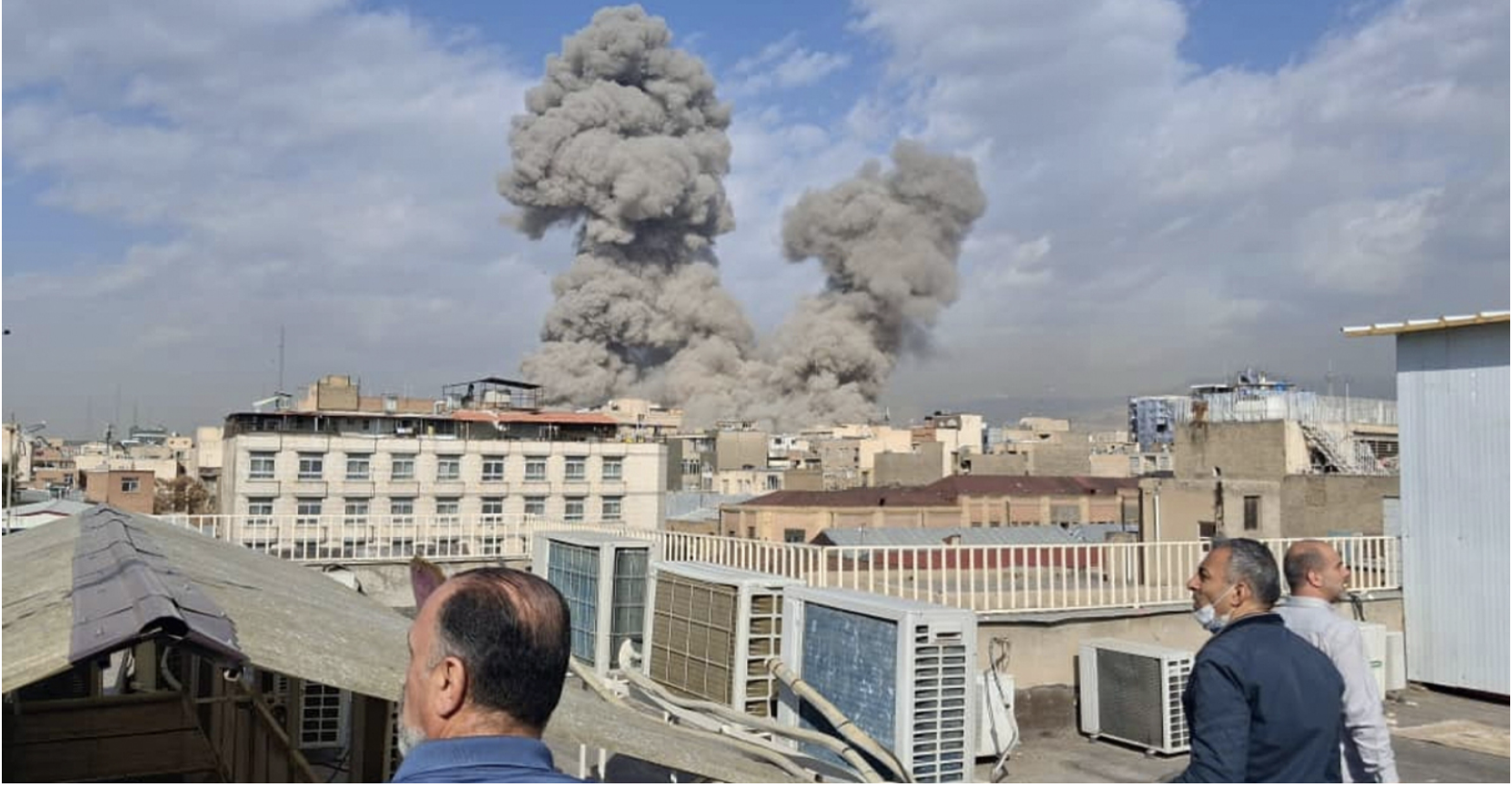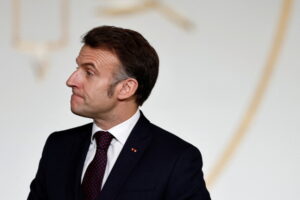Greek PM Alexis Tsipras attended a one-day visit to Israel on Thursday, attending a scheduled trilateral meeting between Greece, Israel and Cyprus. The leaders of the three countries cosigned a declaration touching on a number of matter of common interest, including the support under the UN auspices of a just solution to the Cypriot problem. The full declaration is a follows:
“We, Benjamin Netanyahu, Prime Minister of the State of Israel, Nikos Anastasiades, President of the Republic of Cyprus, and Alexis Tsipras, Prime Minister of the Hellenic Republic, having met in Jerusalem today, 8th December 2016, have agreed to continue strengthening the cooperation between our three countries in order to promote a trilateral partnership in various fields of common interest and to continue working together towards promoting peace, stability, security and prosperity in the Eastern Mediterranean and the wider region.
In light of the underlying challenges and opportunities, and given the fluid and unstable situation in the region, our three countries, which share common democratic values, principles, and interests, have, agreed on the importance of closer cooperation and of a coordinated set of policies.
Though our partnership is special, it is not exclusive in design or nature, and we are ready to welcome other like-minded parties to join our efforts of promoting coordination and cooperation, as well as regional peace and stability. Over the past eleven months since the first trilateral meeting held in Nicosia (28.1.2016), we have been exploring potential collaboration opportunities in a wide range of fields, including issues pertaining to foreign policy, cooperation in R&D, energy, environmental protection projects and joint emergency responses to natural disasters. We continued to exchange information in emergency situations.
Our collaboration went beyond joint fire-fighting exercises as we joined forces and fought the fire, hand in hand, both in Cyprus and in Israel. We shall continue our efforts to support and enhance our successful cooperation in this field.
Following the January 2016 Nicosia Declaration, we welcome the establishment of the Permanent Ministerial Committee on Energy designed to consider strategic and practical aspects of joint action in the field of energy cooperation.
In this context, trilateral meetings were held at Ministerial and Directors’ General level.
We wish to reemphasize that the trilateral energy projects, East-Med pipeline to Europe as well as “EuroAsia Interconnector”, both are of strategic importance to us all, through the creation of economic and political benefits for Israel, Greece and Cyprus, as well as for the rest of Europe, enhancing energy security and further diversification of energy sources and routes
The three sides have discussed the important positive developments with regards to these projects, in joint discussions held in Jerusalem, April 2016, in Athens, in September 2016 and October 2016. .
In this context the ministers have agreed to hold a joint ministerial meeting of the three countries in Jerusalem in January 2017 and to invite the Energy minister of Italy and the Commissioner Energy of the EU in order to continue the discussion on the promotion of the East Med pipeline project.
A Memorandum of Understanding is signed today between our three countries on Research and Development and Technology, in order to enhance cooperation in these fields, including multilateral research and innovation projects.
Following the signing of the MOU, the three parties will take coordinated initiatives in order to proceed within 2017 with a joint Call for Proposals for Industrial research and development projects between Israel, Greece and Cyprus aiming to create collaborative projects in fields such as agriculture, water, environment and solar energy,.
In light of its trans-boundary nature, environment and its protection should receive special attention, with extra focus on our common marine environment, water and wastewater management and effects of climate change on our region.
As agreed by the Ministers responsible for the Environment of our three countries in their meeting of April 2016 in Jerusalem, we reaffirm our commitment to hold a trilateral ministerial meeting once a year and a trilateral working group meeting three times a year.
We stress the importance of cooperation on marine and coastal environment protection and joint capacity building activities on the impacts of the olive oil sector on the environment as well as the exchange of information in the field of climate change adaptation, foreseen to take place in 2017. The three countries acknowledge the importance of tourism and the vast potential for a comprehensive collaboration on joint tourist projects and synergies involving private and public stake holders in the field of tourism towards encouraging the influx of tourists to the region, especially from China, USA and Russia, by offering joint packages, including cruises, religious, cultural and other thematic tourism. We agree to explore ways of sharing information and know-how about tourism innovation and digitalization in order to support local small tourism businesses, joint initiatives and more. Our three Ministers competent for Tourism agree to meet and examine the various facets of the cooperation of our countries in this sector.
In the framework of our cooperation we acknowledge the high importance of the collaboration between our parliaments. In this regard, we see the trilateral meeting of the Speakers of the parliaments scheduled for the 26th of January 2017 and a planned meeting of the Chairmen of the Foreign Affairs and Defense committees, as an important step towards cementing the relations and cooperation.
The Ministries of Foreign Affairs hold a pivotal role in managing the special trilateral relations and orchestrating the mosaic of issues we are promoting together. In this regard, we have asked the Directors General of the Ministries of Foreign Affairs to hold annual trilateral meetings, to take stock of the implementation of the issues we have discussed today.
We stressed the importance of the trilateral cooperation in the field of maritime transport and our willingness to strengthen our cooperation on all issues of mutual interest within the context of the relevant International Conventions and the International Maritime Organization (IMO).
We recognize the importance of maritime Search and Rescue cooperation between the three countries, with any applicable means. We are convinced that collaboration in this field will facilitate fast and efficient response. We are interested in further strengthening our countries’ cooperation in this area through trilateral understandings, including exchanges of experiences and common SAR exercises, in accordance with the provisions of relevant applicable Agreements already concluded between Cyprus and Israel and Cyprus and Greece, according to international maritime conventions.
We encourage collaboration in the health sector. Collaboration may include joint research on health effects of desalinated water and air pollution, emergency preparedness for joint activity during disease outbreaks and natural and man-made disasters, as well as actions for the protection of public health, mutual stockpiling and back-up inventories of pharmaceuticals, blood products and vaccines, are all of great lifesaving importance. Furthermore, efforts should be exerted for the exchange of expertise and know-how between health professionals from the three countries.
We are committed to holding a trilateral ministerial meeting in the health sector, which will be followed by professional working groups on selected issues.
The three Governments support the establishment of a formal dialogue and ongoing cooperation between the diaspora communities, in parallel to the inter-governmental dialogue, as an appropriate expression of the deep friendship among our peoples both in our countries and in our Diasporas around the world.
We will act to encourage a trilateral gathering between the representatives of the diaspora communities in the coming year to plan future cooperation.
We remain steadfastly committed to working together towards the enhancement of the relations between the European Union and the State of Israel in areas of mutual interest and concern, including continued cooperation on strategic and regional issues, based on our shared values. . To this end, we underline the need to promote a new and updated Partnership Priorities Program between the State of Israel and the European Union.
We stress our willingness to join efforts for the protection of cultural properties including the preservation and development of historical and archaeological and religious sites, aiming at safeguarding the historical memory of our peoples and the common heritage of mankind, as well as our readiness to cooperate for the protection of cultural heritage, including underwater heritage and to promote such cooperation with neighboring countries in the Eastern Mediterranean.
We underline the need for an even closer cooperation in the field of security, also in order to confront new threats. We recognize that such threats, due to their transnational nature and differences in methods and approaches, can only be effectively countered jointly through increased trilateral as well as regional and international cooperation and engagement of all reliable regional actors.
We acknowledge the grave dangers posed by terrorism, both regionally and globally, and have agreed to continue joining forces with the international community to tackle these challenges by focusing, among other things, on radicalization and the prevention of violent extremism leading to terrorism. We strongly and unequivocally condemn all actions of terrorism and call upon all States to confront this threat, including through closer security cooperation. In light of the above, we have agreed to enhance our cooperation in this sphere, by initiating trilateral dialogues between our expert authorities. Efforts to curb the flow of foreign fighters, to restrict financial and military support to terrorist groups, and to counter extremist propaganda should intensify. Incitement to violence should be condemned and stopped.
The expert authorities will hold consultations in Cyprus on the first quarter of 2017.
The ongoing turmoil in our region poses a challenge that can be met only by joint action through comprehensive and holistic planning and strategies. It should address ways to end hostilities, eradicate poverty and improve the social and economic fabric as well as life conditions through development. We are also committed to contribute to efforts designed to address the humanitarian aspects of the unfolding crisis in our area, in close cooperation with all concerned parties. Above all, we reiterate our full condemnation of any type of violent extremism and any form of hate.
In the light of recent increased mixed migratory flows in our region, we agree that a comprehensive approach dealing with all aspects related to migration should be applied, including fighting migrant smuggling, and trafficking in human beings, addressing the root causes of the current crisis and promoting development. We also emphasize that the current situation is a global challenge requiring global solutions, recalling the recently adopted New York Declaration for Refugees and Migrants which underlines the need to address the matter based on the principles of solidarity and global responsibility-sharing among all actors.
We express our full and unwavering support to the ongoing negotiation process, under the United Nations Good Offices Mission, for a just, comprehensive and viable settlement of the Cyprus problem, based on international law and the relevant UN Security Council Resolutions. Such a solution, which will reunify the island, based on the respect of democratic principles, human rights and fundamental freedoms of all Cypriots, would not only benefit the people of Cyprus in its entirety, but also significantly contribute to the peace and stability of the region, through Cyprus’ independent foreign policy.
The Governments express their hope that the resumption of negotiations of the MEPP will conclude in a just and lasting solution.
We are convinced of the strategic nature and necessity of our trilateral cooperation and will continue working closely together in order to realize its full potential, to the benefit of our countries and peoples, and to that of the wider region. The three leaders have agreed that the next trilateral Summit will be held in a year’s time in Thessaloniki.”
Ask me anything
Explore related questions





